#longing hours
Explore tagged Tumblr posts
Text

An envy doodle because I wish I could be a goddess too
#rouge the bat#envy#envy doodle#longing hours#woman wish#my sister in chaos bless me please#if any deity exists they would let me be rouge#made this in like 1 minute#just had to sketch it out#sketch#digital art#sonic fan art
5 notes
·
View notes
Text
would love to be kissing a girl right now
4 notes
·
View notes
Text

never had a lyric make me tear up almost instantly before gonna sue Glass Animals
4 notes
·
View notes
Text
What is it about the curve of your body that invites me to hold you in my arms until you melt into me and make a home in my heart and then beg you to keep staying there no matter how many homes you might belong in?
#longing#longing hours#art#writting#writer#mine#love#unrequited love#why#why do we do this#why did i even cry about you#what is it about love that tears me open#i miss her
2 notes
·
View notes
Text
Planet's Fucked: What Can You Do To Help? (Long Post)
Since nobody is talking about the existential threat to the climate and the environment a second Trump term/Republican government control will cause, which to me supersedes literally every other issue, I wanted to just say my two cents, and some things you can do to help. I am a conservation biologist, whose field was hit substantially by the first Trump presidency. I study wild bees, birds, and plants.
In case anyone forgot what he did last time, he gagged scientists' ability to talk about climate change, he tried zeroing budgets for agencies like the NOAA, he attempted to gut protections in the Endangered Species Act (mainly by redefining 'take' in a way that would allow corporations to destroy habitat of imperiled species with no ramifications), he tried to do the same for the Migratory Bird Treaty Act (the law that offers official protection for native non-game birds), he sought to expand oil and coal extraction from federal protected lands, he shrunk the size of multiple national preserves, HE PULLED US OUT OF THE PARIS CLIMATE AGREEMENT, and more.
We are at a crucial tipping point in being able to slow the pace of climate change, where we decide what emissions scenario we will operate at, with existential consequences for both the environment and people. We are also in the middle of the Sixth Mass Extinction, with the rate of species extinctions far surpassing background rates due completely to human actions. What we do now will determine the fate of the environment for hundreds or thousands of years - from our ability to grow key food crops (goodbye corn belt! I hated you anyway but), to the pressure on coastal communities that will face the brunt of sea level rise and intensifying extreme weather events, to desertification, ocean acidification, wildfires, melting permafrost (yay, outbreaks of deadly frozen viruses!), and a breaking down of ecosystems and ecosystem services due to continued habitat loss and species declines, especially insect declines. The fact that the environment is clearly a low priority issue despite the very real existential threat to so many people, is beyond my ability to understand. I do partly blame the public education system for offering no mandatory environmental science curriculum or any at all in most places. What it means is that it will take the support of everyone who does care to make any amount of difference in this steeply uphill battle.
There are not enough environmental scientists to solve these issues, not if public support is not on our side and the majority of the general public is either uninformed or actively hostile towards climate science (or any conservation science).
So what can you, my fellow Americans, do to help mitigate and minimize the inevitable damage that lay ahead?
I'm not going to tell you to recycle more or take shorter showers. I'll be honest, that stuff is a drop in the bucket. What does matter on the individual level is restoring and protecting habitat, reducing threats to at-risk species, reducing pesticide use, improving agricultural practices, and pushing for policy changes. Restoring CONNECTIVITY to our landscape - corridors of contiguous habitat - will make all the difference for wildlife to be able to survive a changing climate and continued human population expansion.
**Caveat that I work in the northeast with pollinators and birds so I cannot provide specific organizations for some topics, including climate change focused NGOs. Scientists on tumblr who specialize in other fields, please add your own recommended resources. **
We need two things: FUNDING and MANPOWER.
You may surprised to find that an insane amount of conservation work is carried out by volunteers. We don't ever have the funds to pay most of the people who want to help. If you really really care, consider going into a conservation-related field as a career. It's rewarding, passionate work.
At the national level, please support:
The Nature Conservancy
Xerces Society for Invertebrate Conservation
Cornell Lab of Ornithology (including eBird)
National Audubon Society
Federal Duck Stamps (you don't need to be a hunter to buy one!)
These first four work to acquire and restore critical habitat, change environmental policy, and educate the public. There is almost certainly a Nature Conservancy-owned property within driving distance of you. Xerces plays a very large role in pollinator conservation, including sustainable agriculture, native bee monitoring programs, and the Bee City/Bee Campus USA programs. The Lab of O is one of the world's leaders in bird research and conservation. Audubon focuses on bird conservation. You can get annual memberships to these organizations and receive cool swag and/or a subscription to their publications which are well worth it. You can also volunteer your time; we need thousands of volunteers to do everything from conducting wildlife surveys, invasive species removal, providing outreach programming, managing habitat/clearing trails, planting trees, you name it. Federal Duck Stamps are the major revenue for wetland conservation; hunters need to buy them to hunt waterfowl but anyone can get them to collect!
THERE ARE DEFINITELY MORE, but these are a start.
Additionally, any federal or local organizations that seek to provide support and relief to those affected by hurricanes, sea level rise, any form of coastal climate change...
At the regional level:
These are a list of topics that affect major regions of the United States. Since I do not work in most of these areas I don't feel confident recommending specific organizations, but please seek resources relating to these as they are likely major conservation issues near you.
PRAIRIE CONSERVATION & PRAIRIE POTHOLE WETLANDS
DRYING OF THE COLORADO RIVER (good overview video linked)
PROTECTION OF ESTUARIES AND SALTMARSH, ESPECIALLY IN THE DELAWARE BAY AND LONG ISLAND (and mangroves further south, everglades etc; this includes restoring LIVING SHORELINES instead of concrete storm walls; also check out the likely-soon extinction of saltmarsh sparrows)
UNDAMMING MAJOR RIVERS (not just the Colorado; restoring salmon runs, restoring historic floodplains)
NATIVE POLLINATOR DECLINES (NOT honeybees. for fuck's sake. honeybees are non-native domesticated animals. don't you DARE get honeybee hives to 'save the bees')
WILDLIFE ALONG THE SOUTHERN BORDER (support the Mission Butterfly Center!)
INVASIVE PLANT AND ANIMAL SPECIES (this is everywhere but the specifics will differ regionally, dear lord please help Hawaii)
LOSS OF WETLANDS NATIONWIDE (some states have lost over 90% of their wetlands, I'm looking at you California, Ohio, Illinois)
INDUSTRIAL AGRICULTURE, esp in the CORN BELT and CALIFORNIA - this is an issue much bigger than each of us, but we can work incrementally to promote sustainable practices and create habitat in farmland-dominated areas. Support small, local farms, especially those that use soil regenerative practices, no-till agriculture, no pesticides/Integrated Pest Management/no neonicotinoids/at least non-persistent pesticides. We need more farmers enrolling in NRCS programs to put farmland in temporary or permanent wetland easements, or to rent the land for a 30-year solar farm cycle. We've lost over 99% of our prairies to corn and soybeans. Let's not make it 100%.
INDIGENOUS LAND-BACK EFFORTS/INDIGENOUS LAND MANAGEMENT/TEK (adding this because there have been increasing efforts not just for reparations but to also allow indigenous communities to steward and manage lands either fully independently or alongside western science, and it would have great benefits for both people and the land; I know others on here could speak much more on this. Please platform indigenous voices)
HARMFUL ALGAL BLOOMS (get your neighbors to stop dumping fertilizers on their lawn next to lakes, reduce agricultural runoff)
OCEAN PLASTIC (it's not straws, it's mostly commercial fishing line/trawling equipment and microplastics)
A lot of these are interconnected. And of course not a complete list.
At the state and local level:
You probably have the most power to make change at the local level!
Support or volunteer at your local nature centers, local/state land conservancy non-profits (find out who owns&manages the preserves you like to hike at!), state fish & game dept/non-game program, local Audubon chapters (they do a LOT). Participate in a Christmas Bird Count!
Join local garden clubs, which install and maintain town plantings - encourage them to use NATIVE plants. Join a community garden!
Get your college campus or city/town certified in the Bee Campus USA/Bee City USA programs from the Xerces Society
Check out your state's official plant nursery, forest society, natural heritage program, anything that you could become a member of, get plants from, or volunteer at.
Volunteer to be part of your town's conservation commission, which makes decisions about land management and funding
Attend classes or volunteer with your land grant university's cooperative extension (including master gardener programs)
Literally any volunteer effort aimed at improving the local environment, whether that's picking up litter, pulling invasive plants, installing a local garden, planting trees in a city park, ANYTHING. make a positive change in your own sphere. learn the local issues affecting your nearby ecosystems. I guarantee some lake or river nearby is polluted
MAKE HABITAT IN YOUR COMMUNITY. Biggest thing you can do. Use plants native to your area in your yard or garden. Ditch your lawn. Don't use pesticides (including mosquito spraying, tick spraying, Roundup, etc). Don't use fertilizers that will run off into drinking water. Leave the leaves in your yard. Get your school/college to plant native gardens. Plant native trees (most trees planted in yards are not native). Remove invasive plants in your yard.
On this last point, HERE ARE EASY ONLINE RESOURCES TO FIND NATIVE PLANTS and LEARN ABOUT NATIVE GARDENING:
Xerces Society Pollinator Conservation Resource Center
Pollinator Pathway
Audubon Native Plant Finder
Homegrown National Park (and Doug Tallamy's other books)
National Wildlife Federation Native Plant Finder (clunky but somewhat helpful)
Heather Holm (for prairie/midwest/northeast)
MonarchGard w/ Benjamin Vogt (for prairie/midwest)
Native Plant Trust (northeast & mid-atlantic)
Grow Native Massachusetts (northeast)
Habitat Gardening in Central New York (northeast)
There are many more - I'm not familiar with resources for western states. Print books are your biggest friend. Happy to provide a list of those.
Lastly, you can help scientists monitor species using citizen science. Contribute to iNaturalist, eBird, Bumblebee Watch, or any number of more geographically or taxonomically targeted programs (for instance, our state has a butterfly census carried out by citizen volunteers).
In short? Get curious, get educated, get involved. Notice your local nature, find out how it's threatened, and find out who's working to protect it that you can help with. The health of the planet, including our resilience to climate change, is determined by small local efforts to maintain and restore habitat. That is how we survive this. When government funding won't come, when we're beat back at every turn trying to get policy changed, it comes down to each individual person creating a safe refuge for nature.
Thanks for reading this far. Please feel free to add your own credible resources and organizations.
#us election#climate change#united states election#resources#native plants#this took 3 hours to write so maybe don't let it flop? i know i write long posts. i know i follow scientists on here#that study birds and corals and other creatures#i realize i did not link sources/resources for everything. i encourage those more qualified to add things on. i need to go to work
16K notes
·
View notes
Text
stay safe because i like being alive at the same time as you.
#poetry#spilled words#writing#spilled ink#artists on tumblr#words#poem#love#poems and poetry#love poem#stay safe#within the last minute#i love you#yearning#yearning hours#longing#poets on tumblr
23K notes
·
View notes
Text
when u go to write a mentally ill person in ur story you are presented two options. the first option is to write your mental illness realistically as you actually experience it with all the ups and downs and people who are like you will resonate with it and feel seen. except every person who reads instagram infographics on mental health that uses the phrase narcicisst for anyone who does anything that crosses them and unironically call themself a dark empath will call you scary and tell you that youre demonizing mentally ill people
the second option is to lie and write inspiration porn for those people to get hard to
#just kidding the third option is i drive myself insane#trying to find a way to write someone like me in a way i may be respected as a human being#without shaving away the more frightening aspects of my experience or life#challenge level . impossible. i will die. or they will make youtube 3 hour long rant videos about it someday#scratchpost#txt
56K notes
·
View notes
Text
Also increasingly aware that a LOT of people "manage" getting through the 40+ hour work week by sleeping less than is healthy and relying on stimulants like coffee and energy drinks to keep them going.
For people who are unwilling or unable to do this...work really does just dominate your life. Like we really should not have to rely on unhealthy practices just to have a social life or keep on top of housework or whatever.
I know I post about this a lot but I'm so TIRED all the time and it's just so depressing that this is how we're expected to spend the one life we have.
#i have to get at least 8 hours of sleep a night to even barely function#with sleep#getting ready for work#commute#cooking#and errands#I typically have maybe 2-3 hours to actually do what i want in a day#and I'm usually too tired to actually do the things i want to do#and that's with a very short commute#if i actually had a long commute I'd basically do nothing but work#i see my friends like once every few weeks or months#because we're all so fucking busy with work and have such little time for socialising#and none of us even have kids or anything!!
27K notes
·
View notes
Text
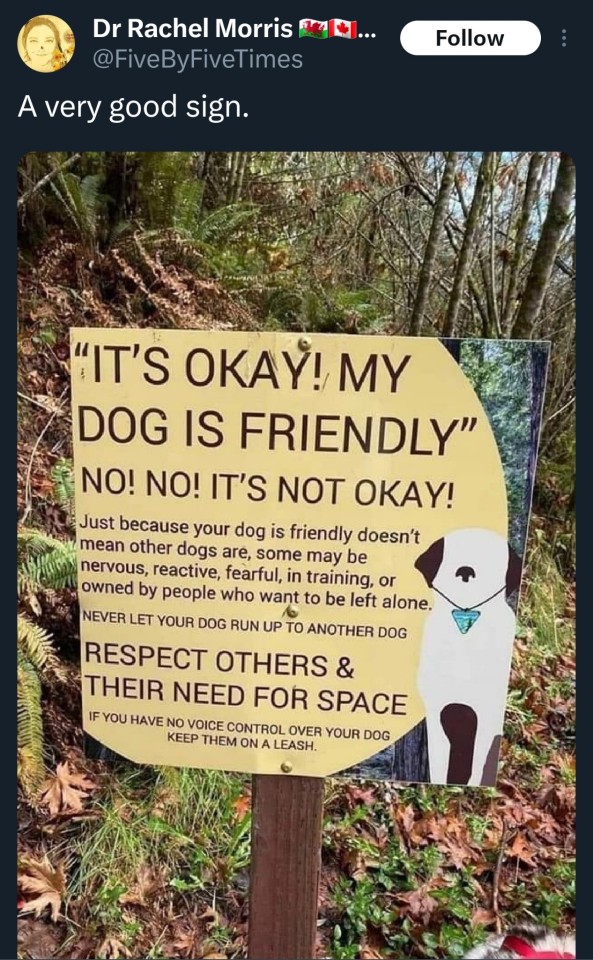
YES YES I NEED THIS SIGN IN EVERY SINGLE PARK PLEASE
This is my daily struggle, I had so many arguments with people with off-leash dogs (in a mandatory leash area!!!). Thanks to this behavior I'm struggling with Kim being anxious/aggressive with other females as she often gets involved in unpleased interactions with free females while on leash. And every single time that I ask for the dog to be at least recalled, I'm being called names and insulted of course.
Also 9 out of 10 their dog isn't really that friendly at all.
#dogblr#dog#dog training#petblr#the most unpleasant part of owning a dog is having to deal with awful dog owners...#the richer the neighbourhood the worst are the owners#but of course the only park that isn't a hour-long drive from home it's full of this kind of people#I want to live in a city where there is enough space to actually walk without meeting anyone if we don't feel like it
17K notes
·
View notes
Text
POV: it’s 4AM. You’re the crew’s chef and you hear noise in the kitchen
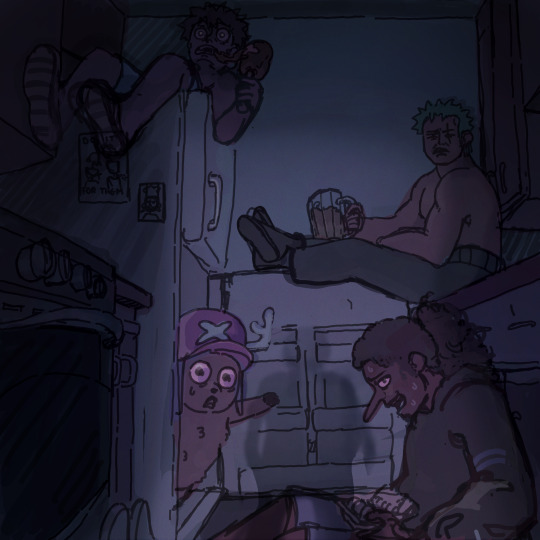
#chia draws#one piece#shitpost#i spent way too long on this#hyperfixated then BAM five hours were lost#straw hat pirates#straw hat crew#straw hat luffy#roronoa zoro#usopp#tony tony chopper#vinsmoke sanji#when ur captain is a cryptic and a menace#pray for sanji (cooking) and Nami (budgeting)
10K notes
·
View notes
Text
future wife? yoo hoo!!! future wife??? where are you?????
0 notes
Text
clocking in for my night shift at the longing-hours factory
0 notes
Photo
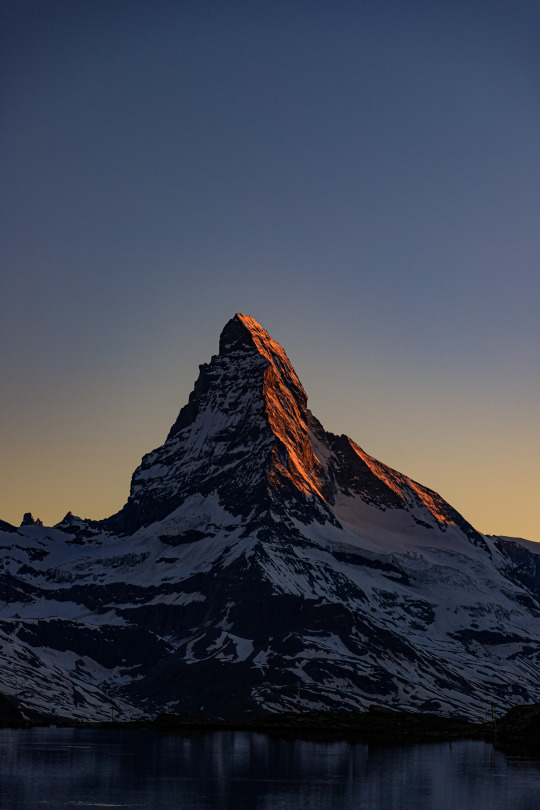
Last light on the Matterhorn - Alpine Haute Route, June 2021
photo by: nature-hiking
#sunset#last light#golden hour#matterhorn#zermatt#landscape#AHR#Alpine Haute Route#alps#long distance trail#wilderness#hiking#trekking#nature#photography#original photography#photographers on tumblr#AHR 2021
10K notes
·
View notes
Text
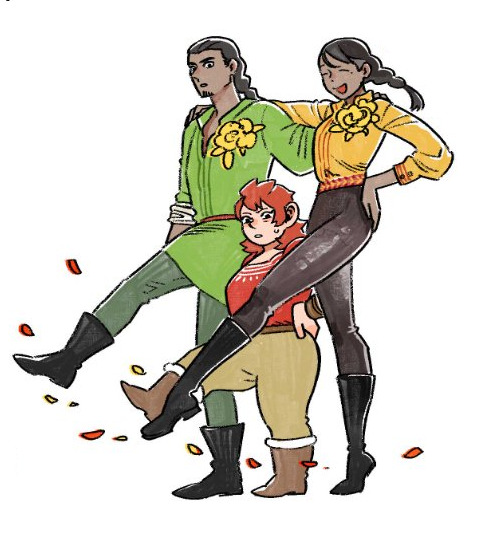

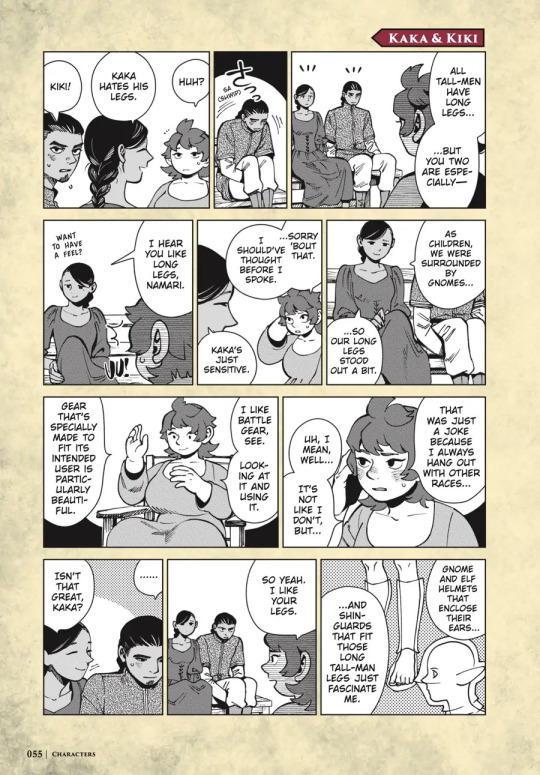
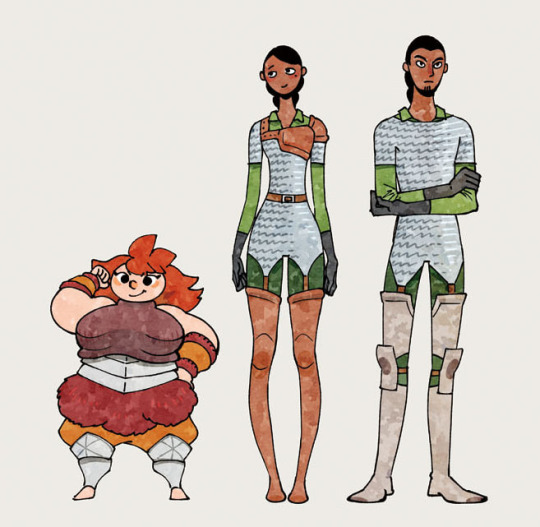
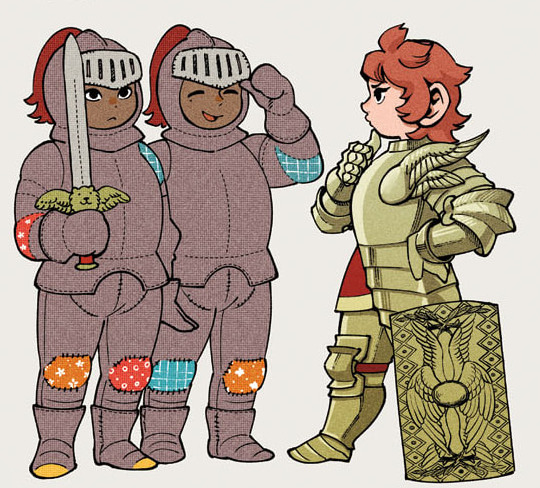
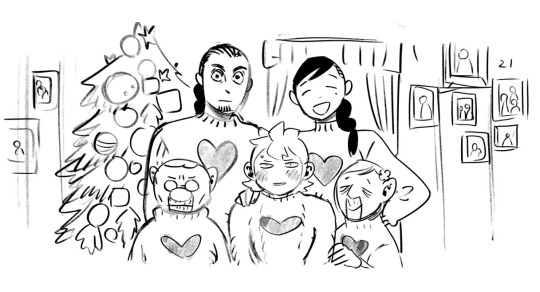
Dungeon Meshi - Namari and the twins, Kaka & Kiki Floke
#dungeon meshi#Daydream Hour#Adventurers Bible#Dunmeshi Extra#compilation#Namari#Kaka Floke#Kiki Floke#Kiki Dungeon meshi#Kaka Dungeon Meshi#Namari the long legs appreciator#tansu party
9K notes
·
View notes
Text
as much as i loved having my s/o live with me through essentially the entire relationship (that's my best friend and the person i adore in my house! we share this space together! we buy groceries together & pick out decor together) there's something so nice sounding about dating someone who lives in a different dwelling than you. All the nights that one of you ends up accidentally (or maybe even on purpose) falling asleep while hanging out at the other's house bc neither of you wants to be the one to end this comfortable little get-together. If they do go home, you fall asleep smelling their shirt or the pillow they were using before they left and it just feels like longing and love and comfort. And every time you do get together the time is even more precious because you know you'll have to go your separate ways at the end of the day/night/weekend or even after the quick date you both had to rush because its the only free time you have but you still want to prioritize them.
#you have your space but you dont want your space but you appreciate the space bc then you appreciate the moments together that much more#longing hours#pining hours#love tag#lovey tag#soft things#romantic tag#relationship tag#emma rambles
0 notes
Text

brazilian miku butchification beeeeeaaaaaamm
#debated on long pigtails but decided against.#see her sock tan? terrible#literally sat down and didnt get up until i finished her. like 6ish hours#id in alt text#digital art#hatsune miku#brazilian miku#brazil#vocaloid#clip studio paint#masc miku#butch miku
7K notes
·
View notes